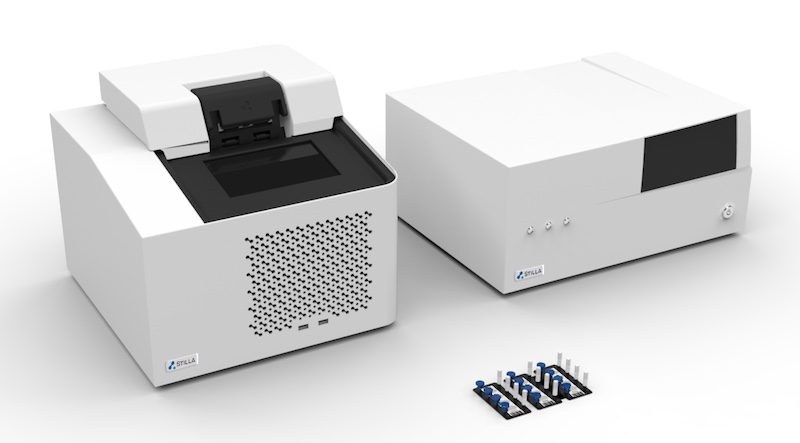Newsletter Signup - Under Article / In Page
"*" indicates required fields
Paris-based Stilla Technologies has raised €16M in a Series A round to sell and develop a high-precision PCR system for DNA quantification with promising applications in diagnostics.
The substantial round was led by Illumina Ventures, the investor arm of the gene sequencing giant Illumina. With the funds, Stilla Technologies plans to accelerate sales of its PCR technology, launch a second product and begin the clinical validation of its diagnostics applications.
Founded in 2013, Stilla Technologies has developed a system for DNA quantification based on digital PCR technology, which is known for higher precision and sensitivity than other PCR methods.
“Digital PCR is the method of choice to analyze known targets in a complex sample. That is typically the challenge for liquid biopsies where the biomarkers of interests, like tumor DNA, are diluted in a complex mixture of wild-type DNA,” Rémi Dangla, CEO and co-founder of Stilla Technologies, told me. “[With digital PCR] it is easy to detect a rare mutant in a high background of wild-type DNA, like a 0.1% mutant to wild-type fraction.”
To achieve that, the sample is divided into thousands of droplets, each one with a single DNA molecule. After the PCR, the machine counts the number of droplets that contain the target sequence, which give a fluorescent signal, to quantify the amount of a specific DNA sequence in the whole sample.
The Naica system developed by Stilla aims to improve on digital PCR technology. “Digital PCR really makes the analysis of complex samples easy and precise. And the Naica System makes digital PCR itself easy,” said Dangla. “It is the simplest system on the market… It’s also the fastest, with a time to result in 2.5h.”

The technology is also designed to detect three different sequences of DNA at once from a single sample, using different fluorescent colors to identify each one. This feature opens opportunities in diagnostic applications, the first of which will be in oncology.
“We and a number of our users are using the Naica System to characterize and monitor cancer patients from simple blood draws by targeting clinically relevant mutations, such as EGFR mutations for lung cancer patients,” said Dangla.
“With the 3 colors, you can target the wild-type DNA with one color, the sensitizing mutations with another and the resistance mutations with the last. Hence, in a single test from a simple blood draw, you can get all the relevant information: will the patient respond to the treatment? is the patient resistant to the treatment?”
Other applications in sight for the company are prenatal testing and GMO detection.
The company is also planning the launch of a second generation product, whose exact features have not yet been disclosed, but Dangla mentioned it is intended to increase the throughput, its capacity to analyze several sequences at once and its integration into automated laboratory workflows.
Illumina currently dominates the gene sequencing market, which it has done through an aggressive strategy of lawsuits and acquisitions. The company has bought a dozen sequencing firms, including Solexa — the British company that pioneered next-generation sequencing. Attracting the interest of the venture arm of the biggest player in the market is surely good news for Stilla and a validation for the potential of its technology.
Images via Shutterstock; Stilla Technologies






